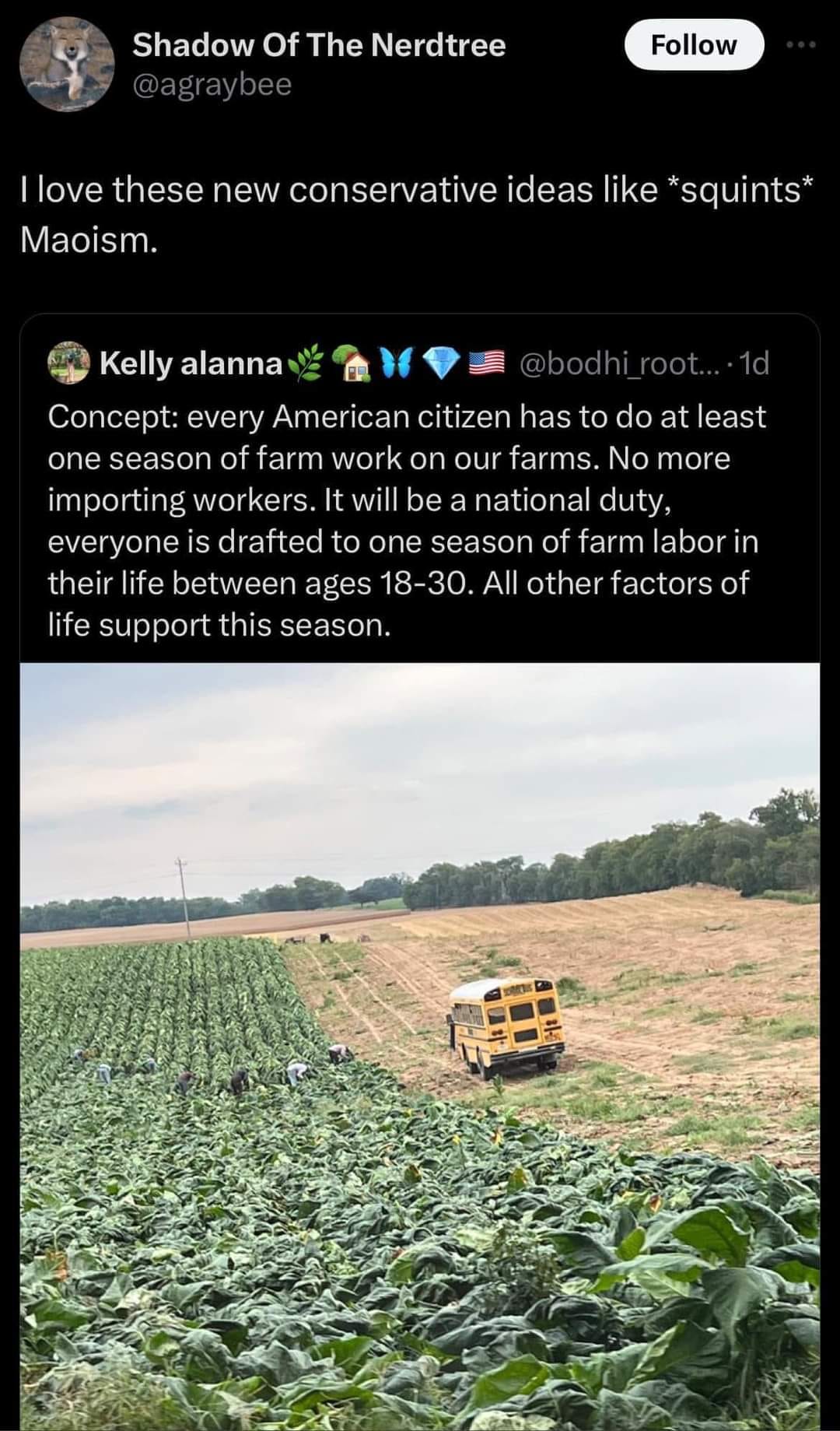this post was submitted on 08 Sep 2024
1108 points (98.9% liked)
Political Memes
5706 readers
2002 users here now
Welcome to politcal memes!
These are our rules:
Be civil
Jokes are okay, but don’t intentionally harass or disturb any member of our community. Sexism, racism and bigotry are not allowed. Good faith argumentation only. No posts discouraging people to vote or shaming people for voting.
No misinformation
Don’t post any intentional misinformation. When asked by mods, provide sources for any claims you make.
Posts should be memes
Random pictures do not qualify as memes. Relevance to politics is required.
No bots, spam or self-promotion
Follow instance rules, ask for your bot to be allowed on this community.
founded 2 years ago
MODERATORS
you are viewing a single comment's thread
view the rest of the comments
view the rest of the comments

you would definitely need to push this as a required junior/senior class, the unfortunate thing is that you need a legitimately insane teacher to actually learn something valuable from it. Generic course material doesn't work as well for something like this i think.
There are definitely some interesting ways to integrate it into english though, that's an idea.
A lot of schools have this already but are very good about naming them non-obvious things.
My sons is called success 101.
mm, idk i'd have to see the class materials to be able to tell you whether or not this was true philosophy. The best phil classes are the ones by the insane teacher. That's how you know you're going to learn something.
Well he's still pretty young, its like an intro class but theres more as they go. Some schools have kept up pretty well, I'm obviously not in a republican state.
yeah, it's pretty hard to teach philosophy to someone younger than like 18. Just do to how abstract it is. Below that age it's more just general life advice i think.
Yeah in first year middle school its framed in ways that makes sense to the kids. Its all practical stuff, how to interact with each other, how to handle disagreements, what is an appropriate thing to say about someone else, how motivation and reward work, etc.
They've been talking about diversity and inclusion and such since they've been in school so they are eerily polite children. Very weird to me coming from school in the 90s.
yeah, idk i think that's generally productive stuff, especially with younger children, but i think when it comes to philosophy specifically, you should really just wait until senior year or so, and then just dive deep, and don't stop at any point. Once you've reached that age your brain has developed a relatively significant amount to the point where it can start to conceptualize these things properly.
It's probably even better in college, but even just doing a psych/phil 101 in senior year of highschool would i think be vastly productive to the average person as they get older.
I wonder if theres still a trend of seniors and juniors taking focus on sociology/psychology classes. I think half my graduating year said they were going to college to become social workers or therapists.
Only thing I'll say is I don't know any single policy would fit all students, although if you intend to go on to further studies in college I would agree some sort of philosophy should be mandatory.
Its not that I don't think it wouldnt benefit everyone to learn about philosophy, I just wouldnt force it on everyone across the board.
idk any of the stats around it, but i would definitely expect to see some sort of trend, if not for anything other than the electives getting freed up as you get further down the chain.
even if you don't go into further education, just the basics of philosophy should let you engage in a lot more critical reasoning further down the line. As long as the student engages, it should pretty much be a net benefit for society.